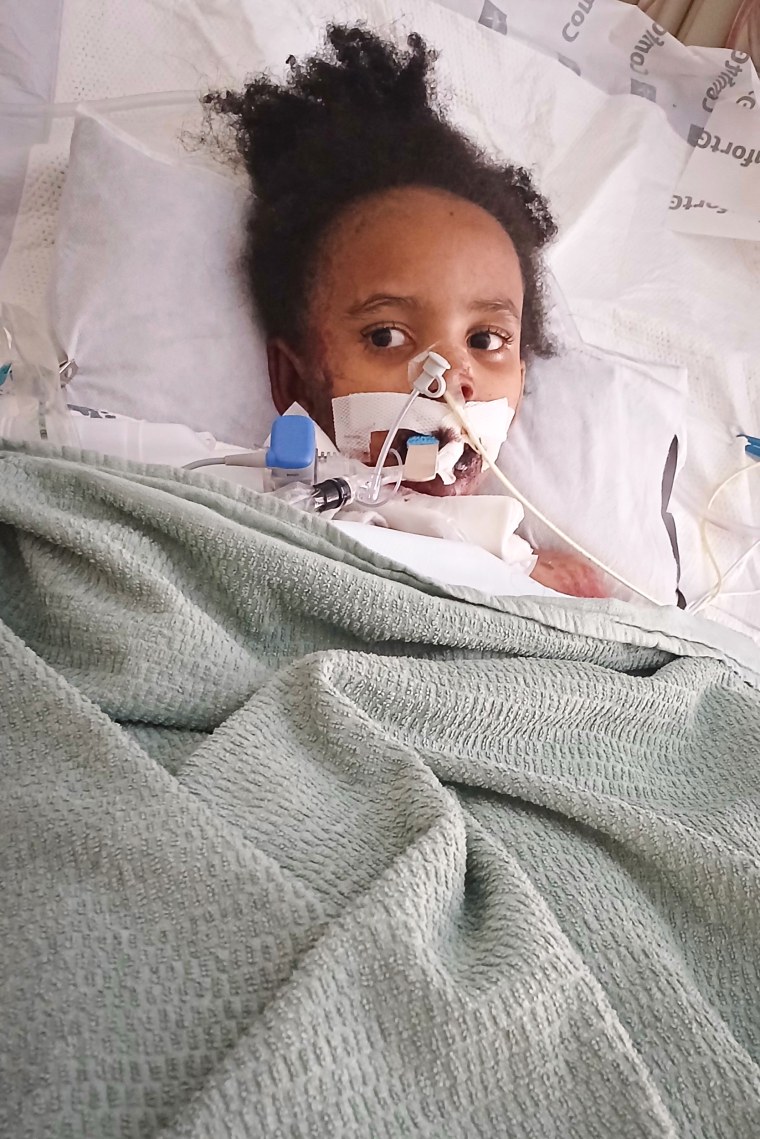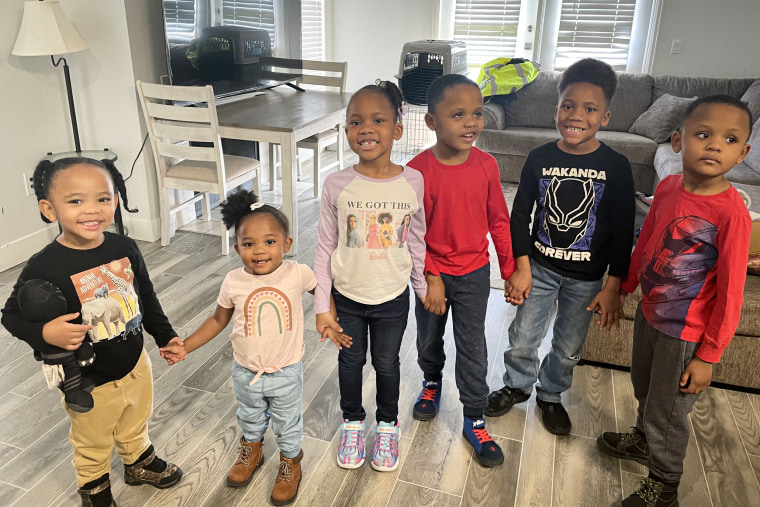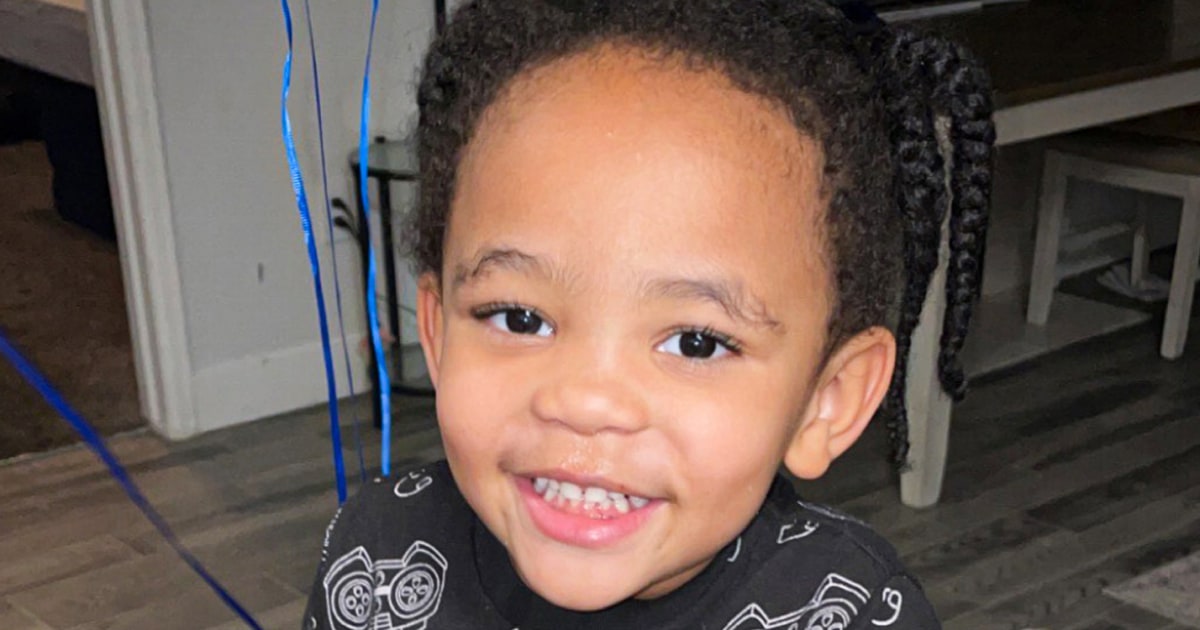The family of a 4-year-old boy whose heart had stopped beating hours ago gathered at Children's Hospital Colorado last month to say goodbye to him.
Some slept in the waiting room after praying at Cartier McDaniel's bed after doctors told his parents, Destiny Anderson and Dominique McDaniel, that it was only a matter of time before his life-support machine could no longer cope. keep your body functioning properly without heartbeat.
All attempts to restart his heart had failed.
“It was the worst moment of my life. The entire hospital room was spinning. I was shaking. “I couldn't believe what was happening,” says Anderson.
But, in a miracle for Anderson and McDaniel, their son's heart started beating on its own again 19 hours after it stopped.
Doctors told them they had no scientific or medical explanation for why Cartier's heart had started beating again, the parents said. Cartier's doctors were not available for comment this week, the hospital said.
However, McDaniel said he had a spiritual explanation: “It was God.”
Cartier's ordeal began on April 8, when he developed a fever that Anderson treated with Tylenol.
“I thought it was a cold and it would go away,” he recalled.
The next day, his condition worsened. Her hands and feet became cold, his mouth turned blue, he was sweating, dark circles formed under his eyes, and he was breathing hard.
That day he drank a lot of water and stayed in bed, which Anderson thought was strange because he is usually an active and curious child.
Anderson knew something was wrong when Cartier wet the bed.
She called the nurse line at Children's Hospital Colorado, which upon hearing the symptoms recommended they go to the emergency room immediately.
During diagnostic tests to detect ailments such as diabetes, Cartier's eyes rolled into the back of his head and doctors could not find a pulse, Anderson and McDaniel explained. They indicated that she had suffered cardiac arrest.

They began performing cardiopulmonary resuscitation on him, but to no avail. Anderson watched helplessly.
“The doctors were putting pressure on his chest,” he said. “I started crying and getting hysterical.”
The medical staff asked him to leave the emergency room.
Cardiac arrest occurs when the heart suddenly and unexpectedly stops pumping and blood stops flowing to the brain and other vital organs, according to the National Institutes of Health.
It causes between 300,000 and 450,000 deaths a year in the country, according to the agency.
Survivors of cardiac arrest can suffer brain damage and injuries to internal organs, according to the Centers for Disease Control and Prevention (CDC).
In 2019, British hiker Audrey Schoeman, 34, survived what doctors have called the longest cardiac arrest in Spanish history after her heart stopped for six hours in a snowstorm, according to Today.
Unlike McDaniel, he did not receive immediate medical attention, but somehow survived.
Emergency doctors had diagnosed McDaniel with an infection caused by the group A streptococcus bacteria, or streptococcus A. Cartier's parents indicated that they did not know what infection their son may have suffered beyond this description, although strep A can cause various infections, from strep throat to scarlet fever.
The condition led to sepsis – the body's extreme response to an infection -, they said.

According to the American Academy of Pediatrics, more than 75,000 infants and children develop severe sepsis in the United States each year. Nearly 7,000 of them die, more than the 1,800 children who die from cancer each year, according to Alex's Lemonade Stand Foundation, a childhood cancer charity.
When Cartier's heart stopped, doctors hooked him up to a form of life support in which blood is pumped through an artificial lung, where oxygen is added and carbon dioxide is removed, his parents explained.
The treatment temporarily keeps a patient alive even if their heart is not working, but doctors must determine whether organs and other body parts will recover, said Dr. Michael Fundora, a pediatric cardiologist at Children's Healthcare of Atlanta who was not involved in the study. Cartier's attention and did not review his medical history.
Medical staff spent 30 minutes trying to revive McDaniel as his bloodstream was attacked by strep A, his parents said. Cartier was then transferred to the intensive care unit.
“At that time, we just prayed to God,” Anderson said.
Doctors told the family that Cartier was not likely to survive.
“I was on assisted breathing, but it was only a matter of time before the machine stopped working,” Anderson says the doctors told him.
That night, other family members came to the hospital to say goodbye to the 4-year-old boy, described by his parents as a “born protector” who is excited about thrill-seeking adventures, like finding spiders and playing at recess.
“I'm not going to lie, I had doubts that everything was going to turn out well. “I'm human,” recalled Anderson, who has six other children, three of them with McDaniel. She “was like, “How am I going to tell my kids that I'm not going to bring their brother home?”
“I was trying to make peace and understand what God wanted.”
Leaning on his faith, he said he asked God to be with his son.
Shortly after, Cartier's heart began to beat.
Doctors initially believed Cartier would go blind because the part of the brain that regulates vision was damaged by lack of oxygen, his parents said. But doctors later changed his prognosis and stated that he would retain his vision, according to them.
He continues to receive dialysis and breathe through a tube, and has undergone multiple skin graft operations after the infection damaged his skin.
Daniel A. Vélez, division chief of cardiothoracic surgery at Phoenix Children's Hospital, said the quick action of the Colorado hospital staff apparently managed to provide enough oxygen to Cartier's brain to survive.
“Breathing resumed a little bit,” said Velez, who was not involved in Cartier's care and did not review his medical history. “It was a remarkable recovery.”
Vélez said Cartier's long-term prognosis is unclear because the recovery capacity of a developing child's brain and kidneys is often unpredictable.
He may also have suffered damage to other organs, according to Fundora.
For now, his parents say, there is no timetable for Cartier's release from the hospital.
Anderson said he blamed himself for not taking him to the hospital sooner, as McDaniel suggested.
“If I had waited longer, it would have been worse,” he said. “I waited too long.”

